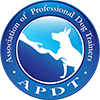 Puppy as defined by Miriam Webster is a young domestic dog; specifically: one less than a year old....and that is just the beginning. The joys of training a puppy are many. Why, because they are a clean slate giving you a great opportunity. Puppies do have inherent breed tendencies, but they all start with knowing they need to find their mother for food and care.
Puppy as defined by Miriam Webster is a young domestic dog; specifically: one less than a year old....and that is just the beginning. The joys of training a puppy are many. Why, because they are a clean slate giving you a great opportunity. Puppies do have inherent breed tendencies, but they all start with knowing they need to find their mother for food and care.
Puppies do not understand the spoken word of humans, that is a learned skill for them. Food is understood, as is shelter and care, so optimizing on these will go a long way to training your puppy on becoming a happy addition to your family.
What is Positive Reinforcement Training? Since puppies do not know the basics humans expect of them, positive training methods for puppies go far as they learn what you want. What does this mean? It means scolding your puppy for grabbing your shoes may not be understood as a bad thing but rather a game of keep away that she's playing with you. Imagine, in your puppy’s mind, she finds a shoe left out. She sniffs it and recognizes her loved human’s scent and wants to cuddle and keep it. You come home to find her gnawing on your favorite sneakers and shout and hurry towards her. She sees you and thinks you are starting playtime because of your actions and takes off running; catch me if you can. This makes you madder and confuses your dog. She thinks gee, when she comes home she is not happy, note to self, stay away from her when she comes home. You see, your puppy does not understand what you are angry at, or why.
However, if when you came home and saw she had your shoe and got a treat and traded it for the shoe instead of yelling at her the result would be considered a positive training experience. She was redirected to you on your terms and happy for you to be home. So putting your shoes in the closet with the door closed is a better plan.
Treats for Positive Reinforcement Let’s use that need for food. When you’re training your puppy to get in her crate you can toss a treat in her crate to make it a positive experience and leave her in there a short time. You can extend the time in her crate a little more each time as she becomes comfortable with it. In addition, you can feed your puppy in her crate maintaining a positive association with the crate as her very own room.
Let’s use that need for food. When you’re training your puppy to get in her crate you can toss a treat in her crate to make it a positive experience and leave her in there a short time. You can extend the time in her crate a little more each time as she becomes comfortable with it. In addition, you can feed your puppy in her crate maintaining a positive association with the crate as her very own room.
Punishing your puppy when she does not yet know the rules of the house is confusing for her and just isn’t fair. But the options of positive learning are many and can build a wonderful relationship with your pup and isn’t that why you chose a dog in the first place? A bit of training now, will go a long way later.
Connecting with a professional dog trainer such as ones we proudly staff at AZ Dog Sports can open understanding of various positive methods that you and your puppy can understand -- resulting in a happy living environment for both you and your new puppy! Starting training as soon as your puppy comes home is a great way to start enjoying each other. Learn more about all our puppy classes for puppy potty training and obedience here!



